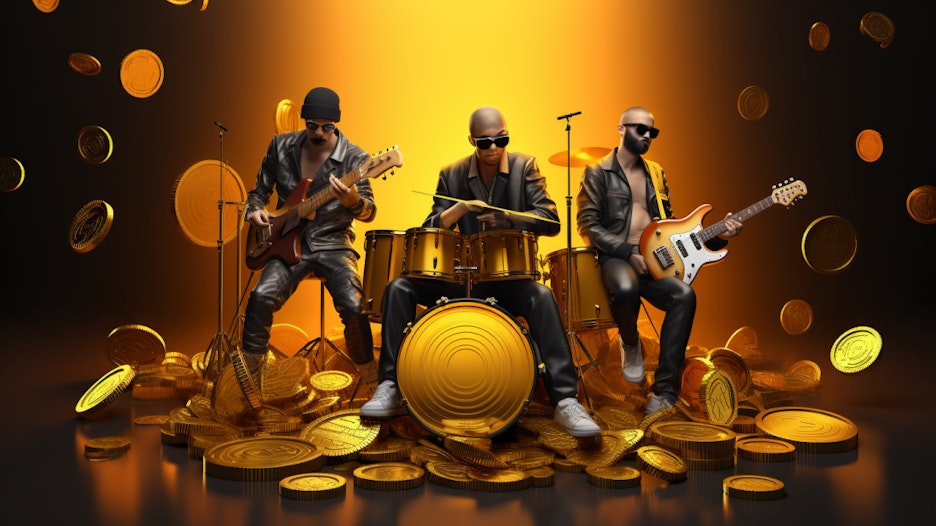News - Ordinals now also allows music on Bitcoin
A year ago it was unthinkable, today it is a reality with Bitcoin: NFTs, memecoins, games and recently blockchain-generated music. With a music machine built on the Ordinals protocol, crypto enthusiasts can create new songs. The self-test notes that the music is still limited to 8-bit tonalities, so the charts cannot be stormed just yet.
Created by pseudonymous developer Ratoshi, the protocol serves as a complement to the text-based role-playing game Descent into Darkness, which also runs on the Bitcoin blockchain. The developer created the sound using the artificial intelligence ChatGPT and integrated it into the blockchain application. Such on-chain apps have existed for some time, for example as a playable version of Doom.
Bitcoin and Smart Contracts: An odd couple
Music on Bitcoin is possible thanks to an innovative development within Ordinals. Instead of the technology used so far, so-called "recursive inscriptions" can communicate with other inscriptions. This allows data already in the blockchain to be retrieved, similar to smart contracts on Ethereum. This allows developers to bypass the block storage limit of four megabytes - and avoid data congestion.
Awesome! In this page you can input different words and it will generate a piece of music. I tried a few times and recorded this snippet. What do you think of the music called 'ordinals BRC20 whee'? @ord_io @LeonidasNFT @markjeffrey @ratoshi44 https://t.co/FpB9TOV0jm… pic.twitter.com/pH1rXeHBvZ
— WheeEnthusiast (@WheeBRC20) July 2, 2023
A second benefit: low transaction costs. This allows developers to work cost-effectively on the main network without relying on Layer 2 solutions. So far, Bitcoin music has been well received by most users. Critics, however, question the usefulness of the technology: "Satoshi [Nakamoto] would have had a heart attack."
Ordinals cause data congestion in blockchain
In May, a bitcoin transaction cost US$30. Reason for the associated high network usage: bitcoin NFTs. The hype surrounding the Ordinals protocol generated immense activity on the network. As a result, Bitcoin recorded more transactions - about 682,000 - in a single day than ever before. A milestone in its more than 14-year history.
The Ordinals protocol is being scrutinized in Bitcoin Maxi circles. Proof of Work is originally a system that is actually supposed to prevent spam. The argument is that the blockchain is now becoming "polluted" with random data packets that have little to do with financial transactions. On the other hand, shouldn't an open protocol like Bitcoin bite the bullet and allow non-financial transactions as well?
It remains to be seen to what extent the new music application will hit the nerve of the Bitcoin community. Finally, the dispute over ordinals has reignited the debate over block size, and with it the war over block size.






